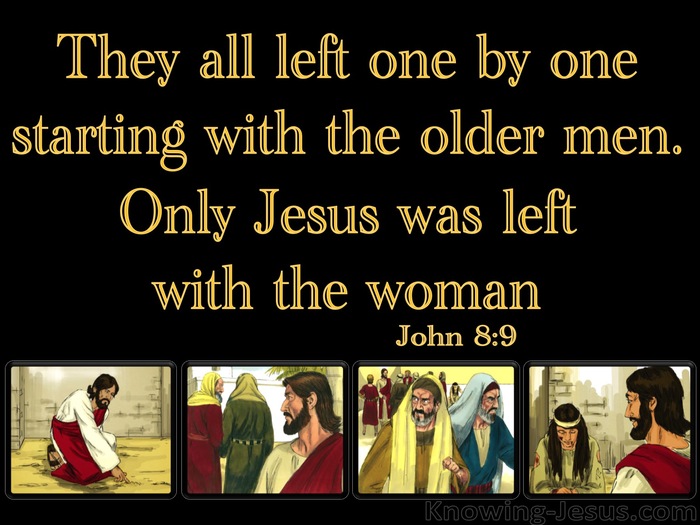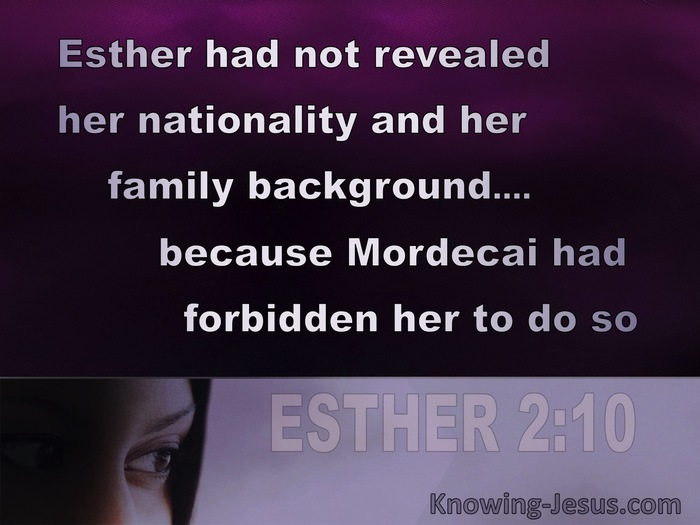26 Bible Verses about God's Mercy, Example Of
Most Relevant Verses
But he lingered; and the men grabbed his hand, his wife's hand, and his two daughters' hands, Yahweh being merciful to him; and they took him out, and set him outside of the city.
For indeed he was sick, nearly to death, but God had mercy on him; and not on him only, but on me also, that I might not have sorrow on sorrow.
although I was before a blasphemer, a persecutor, and insolent. However, I obtained mercy, because I did it ignorantly in unbelief.
Joseph was brought down to Egypt. Potiphar, an officer of Pharaoh's, the captain of the guard, an Egyptian, bought him from the hand of the Ishmaelites that had brought him down there. Yahweh was with Joseph, and he was a prosperous man. He was in the house of his master the Egyptian. His master saw that Yahweh was with him, and that Yahweh made all that he did prosper in his hand.read more.
Joseph found favor in his sight. He ministered to him, and he made him overseer over his house, and all that he had he put into his hand.
Joseph was brought down to Egypt. Potiphar, an officer of Pharaoh's, the captain of the guard, an Egyptian, bought him from the hand of the Ishmaelites that had brought him down there.
They told him, saying, "Joseph is still alive, and he is ruler over all the land of Egypt." His heart fainted, for he didn't believe them. They told him all the words of Joseph, which he had said to them. When he saw the wagons which Joseph had sent to carry him, the spirit of Jacob, their father, revived. Israel said, "It is enough. Joseph my son is still alive. I will go and see him before I die."
Isaac brought her into his mother Sarah's tent, and took Rebekah, and she became his wife. He loved her. Isaac was comforted after his mother's death.
Now Sarai, Abram's wife, bore him no children. She had a handmaid, an Egyptian, whose name was Hagar. Sarai said to Abram, "See now, Yahweh has restrained me from bearing. Please go in to my handmaid. It may be that I will obtain children by her." Abram listened to the voice of Sarai. Sarai, Abram's wife, took Hagar the Egyptian, her handmaid, after Abram had lived ten years in the land of Canaan, and gave her to Abram her husband to be his wife.read more.
He went in to Hagar, and she conceived. When she saw that she had conceived, her mistress was despised in her eyes. Sarai said to Abram, "This wrong is your fault. I gave my handmaid into your bosom, and when she saw that she had conceived, I was despised in her eyes. Yahweh judge between me and you." But Abram said to Sarai, "Behold, your maid is in your hand. Do to her whatever is good in your eyes." Sarai dealt harshly with her, and she fled from her face. The angel of Yahweh found her by a fountain of water in the wilderness, by the fountain in the way to Shur. He said, "Hagar, Sarai's handmaid, where did you come from? Where are you going?" She said, "I am fleeing from the face of my mistress Sarai." The angel of Yahweh said to her, "Return to your mistress, and submit yourself under her hands." The angel of Yahweh said to her, "I will greatly multiply your seed, that they will not be numbered for multitude." The angel of Yahweh said to her, "Behold, you are with child, and will bear a son. You shall call his name Ishmael, because Yahweh has heard your affliction. He will be like a wild donkey among men. His hand will be against every man, and every man's hand against him. He will live opposite all of his brothers." She called the name of Yahweh who spoke to her, "You are a God who sees," for she said, "Have I even stayed alive after seeing him?" Therefore the well was called Beer Lahai Roi. Behold, it is between Kadesh and Bered. Hagar bore a son for Abram. Abram called the name of his son, whom Hagar bore, Ishmael. Abram was eighty-six years old when Hagar bore Ishmael to Abram.
Now Sarai, Abram's wife, bore him no children. She had a handmaid, an Egyptian, whose name was Hagar.
Yahweh God said, "It is not good that the man should be alone; I will make him a helper suitable for him."
They, when they heard it, being convicted by their conscience, went out one by one, beginning from the oldest, even to the last. Jesus was left alone with the woman where she was, in the middle. Jesus, standing up, saw her and said, "Woman, where are your accusers? Did no one condemn you?" She said, "No one, Lord." Jesus said, "Neither do I condemn you. Go your way. From now on, sin no more."
She went, and came and gleaned in the field after the reapers: and she happened to come to the portion of the field belonging to Boaz, who was of the family of Elimelech.
So they two went until they came to Bethlehem. It happened, when they were come to Bethlehem, that all the city was moved about them, and [the women] said, "Is this Naomi?"
Ruth the Moabitess said, "Yes, he said to me, 'You shall stay close to my young men, until they have ended all my harvest.'"
It happened soon afterwards, that he went about through cities and villages, preaching and bringing the good news of the Kingdom of God. With him were the twelve, and certain women who had been healed of evil spirits and infirmities: Mary who was called Magdalene, from whom seven demons had gone out; and Joanna, the wife of Chuzas, Herod's steward; Susanna; and many others; who served them from their possessions.read more.
When a great multitude came together, and people from every city were coming to him, he spoke by a parable. "The farmer went out to sow his seed. As he sowed, some fell along the road, and it was trampled under foot, and the birds of the sky devoured it. Other seed fell on the rock, and as soon as it grew, it withered away, because it had no moisture. Other fell amid the thorns, and the thorns grew with it, and choked it. Other fell into the good ground, and grew, and brought forth fruit one hundred times." As he said these things, he called out, "He who has ears to hear, let him hear!" Then his disciples asked him, "What does this parable mean?" He said, "To you it is given to know the mysteries of the Kingdom of God, but to the rest in parables; that 'seeing they may not see, and hearing they may not understand.' Now the parable is this: The seed is the word of God.
It happened soon afterwards, that he went about through cities and villages, preaching and bringing the good news of the Kingdom of God. With him were the twelve,
He entered and was passing through Jericho. There was a man named Zacchaeus. He was a chief tax collector, and he was rich. He was trying to see who Jesus was, and couldn't because of the crowd, because he was short.read more.
He ran on ahead, and climbed up into a sycamore tree to see him, for he was to pass that way. When Jesus came to the place, he looked up and saw him, and said to him, "Zacchaeus, hurry and come down, for today I must stay at your house." He hurried, came down, and received him joyfully. When they saw it, they all murmured, saying, "He has gone in to lodge with a man who is a sinner." Zacchaeus stood and said to the Lord, "Behold, Lord, half of my goods I give to the poor. If I have wrongfully exacted anything of anyone, I restore four times as much." Jesus said to him, "Today, salvation has come to this house, because he also is a son of Abraham. For the Son of Man came to seek and to save that which was lost."
One of the Pharisees invited him to eat with him. He entered into the Pharisee's house, and sat at the table. Behold, a woman in the city who was a sinner, when she knew that he was reclining in the Pharisee's house, she brought an alabaster jar of ointment. Standing behind at his feet weeping, she began to wet his feet with her tears, and she wiped them with the hair of her head, kissed his feet, and anointed them with the ointment.read more.
Now when the Pharisee who had invited him saw it, he said to himself, "This man, if he were a prophet, would have perceived who and what kind of woman this is who touches him, that she is a sinner." Jesus answered him, "Simon, I have something to tell you." He said, "Teacher, say on." "A certain lender had two debtors. The one owed five hundred denarii, and the other fifty. When they couldn't pay, he forgave them both. Which of them therefore will love him most?" Simon answered, "He, I suppose, to whom he forgave the most." He said to him, "You have judged correctly." Turning to the woman, he said to Simon, "Do you see this woman? I entered into your house, and you gave me no water for my feet, but she has wet my feet with her tears, and wiped them with the hair of her head. You gave me no kiss, but she, since the time I came in, has not ceased to kiss my feet. You didn't anoint my head with oil, but she has anointed my feet with ointment. Therefore I tell you, her sins, which are many, are forgiven, for she loved much. But to whom little is forgiven, the same loves little." He said to her, "Your sins are forgiven." Those who sat at the table with him began to say to themselves, "Who is this who even forgives sins?" He said to the woman, "Your faith has saved you. Go in peace."
It happened, as he came near Jericho, a certain blind man sat by the road, begging. Hearing a multitude going by, he asked what this meant. They told him that Jesus of Nazareth was passing by.read more.
He cried out, "Jesus, you son of David, have mercy on me!" Those who led the way rebuked him, that he should be quiet; but he cried out all the more, "You son of David, have mercy on me!" Standing still, Jesus commanded him to be brought to him. When he had come near, he asked him, "What do you want me to do?" He said, "Lord, that I may see again." Jesus said to him, "Receive your sight. Your faith has healed you." Immediately he received his sight, and followed him, glorifying God. All the people, when they saw it, praised God.
It happened soon afterwards, that he went to a city called Nain. Many of his disciples, along with a great multitude, went with him. Now when he drew near to the gate of the city, behold, one who was dead was carried out, the only son of his mother, and she was a widow. Many people of the city were with her. When the Lord saw her, he had compassion on her, and said to her, "Don't cry."read more.
He came near and touched the coffin, and the bearers stood still. He said, "Young man, I tell you, arise!" He who was dead sat up, and began to speak. And he gave him to his mother.
There was in the days of Herod, the king of Judea, a certain priest named Zacharias, of the priestly division of Abijah. He had a wife of the daughters of Aaron, and her name was Elizabeth. They were both righteous before God, walking blamelessly in all the commandments and ordinances of the Lord. But they had no child, because Elizabeth was barren, and they both were well advanced in years.read more.
Now it happened, while he executed the priest's office before God in the order of his division, according to the custom of the priest's office, his lot was to enter into the temple of the Lord and burn incense. The whole multitude of the people were praying outside at the hour of incense. An angel of the Lord appeared to him, standing on the right side of the altar of incense. Zacharias was troubled when he saw him, and fear fell upon him. But the angel said to him, "Don't be afraid, Zacharias, because your request has been heard, and your wife, Elizabeth, will bear you a son, and you shall call his name John. You will have joy and gladness; and many will rejoice at his birth. For he will be great in the sight of the Lord, and he will drink no wine nor strong drink. He will be filled with the Holy Spirit, even from his mother's womb. He will turn many of the children of Israel to the Lord, their God. He will go before him in the spirit and power of Elijah, 'to turn the hearts of the fathers to the children,' and the disobedient to the wisdom of the just; to prepare a people prepared for the Lord."
But if you don't make known to me the dream, there is but one law for you; for you have prepared lying and corrupt words to speak before me, until the time be changed: therefore tell me the dream, and I shall know that you can show me its interpretation.
There was a certain Jew in the citadel of Susa, whose name was Mordecai, the son of Jair, the son of Shimei, the son of Kish, a Benjamite, who had been carried away from Jerusalem with the captives who had been carried away with Jeconiah king of Judah, whom Nebuchadnezzar the king of Babylon had carried away. He brought up Hadassah, that is, Esther, his uncle's daughter; for she had neither father nor mother. The maiden was fair and beautiful; and when her father and mother were dead, Mordecai took her for his own daughter.read more.
So it happened, when the king's commandment and his decree was heard, and when many maidens were gathered together to the citadel of Susa, to the custody of Hegai, that Esther was taken into the king's house, to the custody of Hegai, keeper of the women. The maiden pleased him, and she obtained kindness from him. He quickly gave her cosmetics and her portions of food, and the seven choice maidens who were to be given her out of the king's house. He moved her and her maidens to the best place in the women's house. Esther had not made known her people nor her relatives, because Mordecai had instructed her that she should not make it known. Mordecai walked every day in front of the court of the women's house, to find out how Esther did, and what would become of her. Each young woman's turn came to go in to King Ahasuerus after her purification for twelve months (for so were the days of their purification accomplished, six months with oil of myrrh, and six months with sweet fragrances and with preparations for beautifying women). The young woman then came to the king like this: whatever she desired was given her to go with her out of the women's house to the king's house. In the evening she went, and on the next day she returned into the second women's house, to the custody of Shaashgaz, the king's eunuch, who kept the concubines. She came in to the king no more, unless the king delighted in her, and she was called by name. Now when the turn of Esther, the daughter of Abihail the uncle of Mordecai, who had taken her for his daughter, came to go in to the king, she required nothing but what Hegai the king's eunuch, the keeper of the women, advised. Esther obtained favor in the sight of all those who looked at her. So Esther was taken to King Ahasuerus into his royal house in the tenth month, which is the month Tebeth, in the seventh year of his reign. The king loved Esther more than all the women, and she obtained favor and kindness in his sight more than all the virgins; so that he set the royal crown on her head, and made her queen instead of Vashti. Then the king made a great feast for all his princes and his servants, even Esther's feast; and he proclaimed a holiday in the provinces, and gave gifts according to the king's bounty.
However, for this cause I obtained mercy, that in me first, Jesus Christ might display all his patience, for an example of those who were going to believe in him for eternal life.
Bible Theasaurus
- Example (103 instances)






